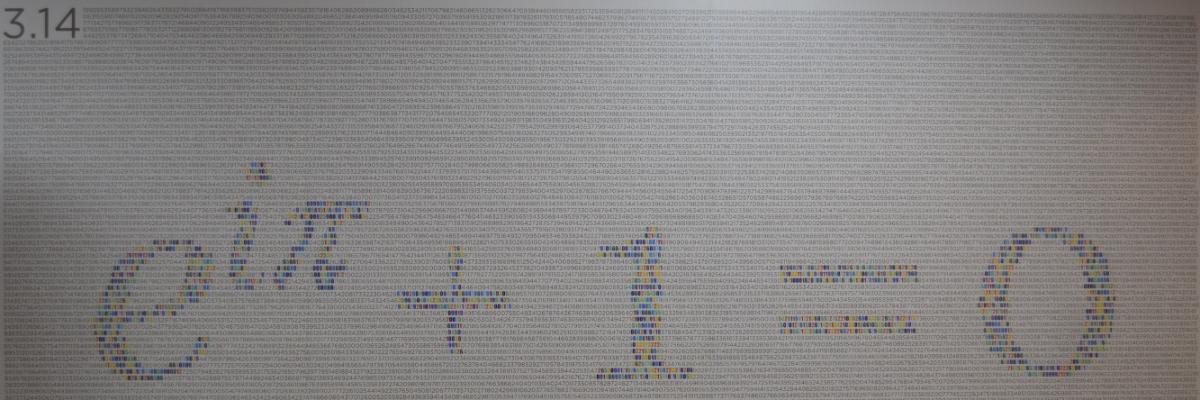The main idea of the mathematics unit is to develop research that draws inspiration from and connects to different mathematical disciplines and also to encourage collaborations with scientists in areas such as biology, physics, social sciences, earth sciences, computer science, and many others, thus making it an integral part of the scientific ecosystem within ICTS.
The group pursues a wide range of mathematical, statistical and computational research themes. In particular, current research includes dynamical systems, probability, nonlinear partial differential equations, geometry and mathematical physics.
Main research areas:
- Algebraic Geometry: Moduli spaces arising in quantum field theory and string theory, deformation theory, derived algebraic geometry, derived symplectic geometry, stability structures and extremal metrics, mirror symmetry, non-abelian Hodge theory and higher Teichmüller theory.
Faculty involved: Pranav Pandit
- Analysis of partial differential equations and applications: Analytical and numerical methods for PDEs. Boundary-value problems, stability of solutions to nonlinear PDEs, reduced and asymptotic models. Applications in surface gravity waves, geophysical fluid dynamics, monsoon modelling, inverse and observer problems for PDEs. Experimental fluid dynamics
Faculty involved: Vishal Vasan, Jim Thomas
- Differential geometry: Constant mean curvature surfaces, Minimal surfaces, Maximal surfaces in Lorentz-Minkowski space
Faculty involved: Rukmini Dey
- Homotopical Mathematics: Higher category theory, higher algebraic structures, and their applications in mathematical physics; homotopy-theoretic and categorical methods in algebraic and symplectic geometry, derived noncommutative geometry, homological mirror symmetry.
Faculty involved: Pranav Pandit
- Mathematical physics: Quantization (especially geometric quantization) and coherent states; Geometric quantization of various moduli spaces of solutions of equations coming from physics; Quantization (especially geometric quantization) of Integrable systems, Study of moduli spaces of vortices, Higgs bundles, Generalized Seiberg-Witten equations etc.
Faculty involved: Rukmini Dey
- Monsoon dynamics: Conceptual models of monsoon dynamics, including ODE, PDE, and stochastic models; Data based studies of monsoon dynamics; Dynamics of cloud formation
Faculty involved: Rama Govindarajan, Samriddhi Sankar Ray, Vishal Vasan
- Ocean dynamics: Mesoscale and Submesoscale flows, Turbulent energy transfer pathways, Internal gravity waves, Wave-Wave and Eddy-Wave interactions, Tracer dispersion and effective diffusivity, Asymptotic and Stochastic models for rotating and stratified turbulence.
Faculty involved: Jim Thomas
- Probability Theory: First and last passage percolation; Interacting particle system; Large Deviations; Random matrices and graphs; Statistical Physics
Faculty involved: Anirban Basak, Riddhipratim Basu
Activities (past and near future):
- Advances in Applied Probability: Aug 05-17, 2019
- Cauchy-Riemann Equations in Higher Dimensions: Jul 15-Aug 02, 2019
- Probabilistic Methods in Negative Curvature: Mar 11-22, 2019
- Algebraic and Analytic Aspects of Automorphic Forms: Feb 25-Mar 07, 2019
- Universality in random structures: Interfaces, Matrices, Sandpiles: Jan 14-Feb 08, 2019
- The Legacy of Emmy Noether: Aug 29-30, 2016
- Summer Research Program on Dynamics of Complex Systems: May 23 - Jul 23, 2016
- Airbus Day at ICTS-TIFR: Jan 11, 2015
- Nonlinear filtering and data assimilation: Jan 08-11, 2014
- Mathematical Perspectives on clouds, climate, and tropical meteorology: Jan 22-26, 2013
- Data Assimilation Research Program (DARP): July 04-23, 2011
- Scientific discovery through intensive data exploration: Feb 02-11, 2011
Opportunities:
The group envisions a significant and sustained growth in many areas and at all levels. Specific research areas that we would like to grow include, but are not limited to, probability and stochastic analysis, geometry and topology, mathematical physics, dynamical systems and differential equations, scientific computing, and discrete mathematics. ICTS would also like to develop a theoretical computer science group as part of this unit.
Please click here for more information about the faculty positions.
For information about ICTS graduate program in mathematics (as part of the TIFR deemed university), please click here


